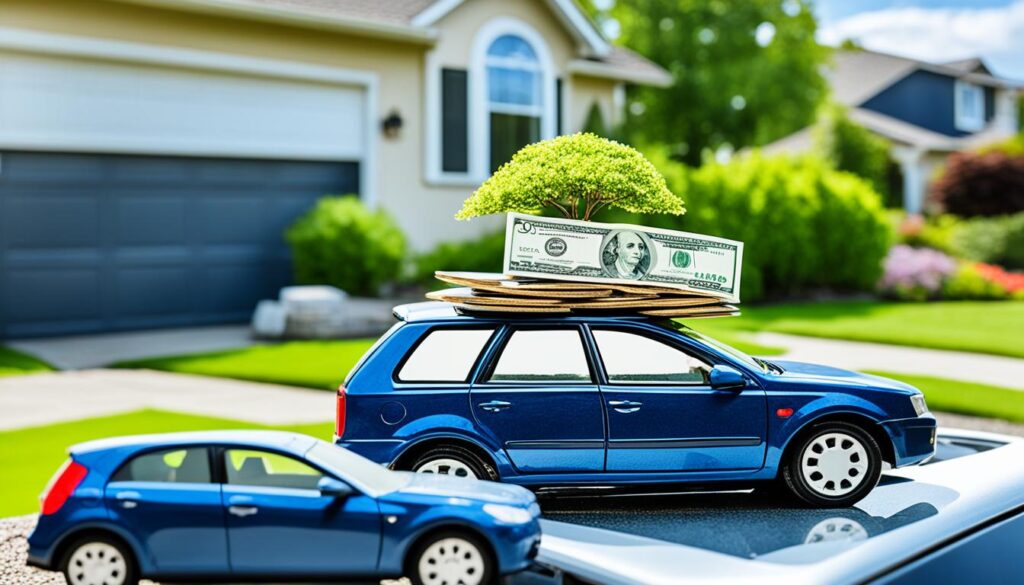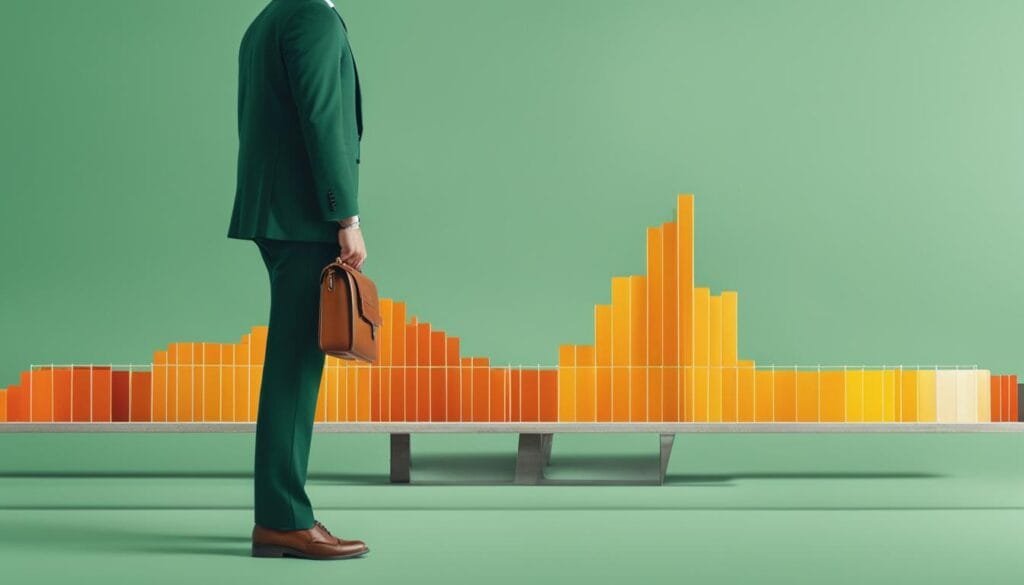Did you know that the average car loan in the United States ranges from $5,000 to $50,000, while more than 64% of Americans struggle with making timely payments due to various financial obligations? This startling statistic underscores the significant tension between prioritizing a car loan and saving for a house, a common dilemma many aspiring homeowners face today1. As interest rates fluctuate and the cost of living rises, the question of whether to pay off a car loan or save for a house becomes increasingly pertinent for individuals aiming for financial stability and homeownership.
In this article, we will explore the key factors involved in making this crucial financial decision. Understanding your personal financial goals, assessing your current debt situation, and weighing the pros and cons of each choice can illuminate the best path forward. The ultimate objective is to provide guidance for those asking themselves, “Should I pay off my car loan or save for a house?” By carefully examining these variables, you can take actionable steps toward achieving your financial aspirations.
Key Takeaways
- The average auto loan amount can influence financial decisions significantly.
- Understanding your debt situation helps clarify financial priorities.
- A strong credit score can provide better loan options for both car and home purchases.
- Evaluating the impact of monthly payments on your overall financial health is crucial.
- Financial planning should incorporate both immediate needs and long-term goals.
Understanding Your Financial Goals
To make a sound financial decision about whether to pay off a car loan or save for a house, it is vital to first define your priorities. Individuals need to evaluate what matters more at the present moment: reducing debt or building savings for a down payment. Different personal situations, including current debt levels, income, and market conditions, influence these priorities. A comprehensive assessment can guide effective strategies that align with one’s long-term financial objectives.
Defining Your Priorities
When you decide to prioritize finances, it often comes down to key considerations regarding your financial health. Significant consumer debt can strain finances, especially high-interest debt like credit cards which average close to 16% in interest rates2. Almost 43% of U.S. adults carrying credit card debt attribute it to emergencies or unexpected expenses, which highlights the urgent nature of debt management3. Individuals should weigh the following factors when determining their priorities:
- Current debt levels and interest rates
- Income stability and bonus income
- Market conditions and housing pricing trends
- Your capacity to budget for future mortgage payments
The Importance of Financial Planning
Financial planning cannot be overstated in the landscape of debt management and saving endeavors. A well-crafted financial plan enables individuals to project their needs and prepare for both anticipated and unforeseen expenses. An effective strategy can ensure that paying off a car loan does not entirely deter progress towards a home ownership goal, especially when considering the recommendation for an emergency fund size of $1,000 or enough to cover 3 – 6 months of necessary expenses2. Consulting with financial experts can provide personalized insights, empowering individuals to allocate funds judiciously towards either saving or debt repayment.

Assessing Your Current Debt Situation
Analyzing your financial standing involves understanding various forms of debt, which can significantly influence your home ownership goals. A key aspect is distinguishing between high-interest and low-interest debt, as this can impact your financial decisions moving forward.
High-Interest vs. Low-Interest Debt
High-interest debts, such as credit cards, typically come with rates that can surpass 20%. This drives a need to prioritize these payments first. Conversely, low-interest debts—including car loans—often allow you more flexibility in budgeting for other long-term financial goals, such as a down payment on a house. Paying off a car loan can lead to a decrease in your debt-to-income ratio (DTI), which is critical for mortgage approvals. Most lenders prefer a DTI under 36% but may consider going up to 43% depending on other factors4.
Impact of Debt on Home Ownership Goals
Debt can present challenges in achieving home ownership. Existing liabilities affect DTI ratios, which lenders use to determine eligibility for mortgages. For example, if an individual has $1,200 in monthly debt payments while earning $5,000 monthly, their DTI is calculated at 24%, creating a favorable impression for lenders4. Additionally, paying off a car loan can enhance your credit score over time, which is crucial for obtaining a mortgage. While some may experience a temporary dip in credit scores following the payoff, the overall long-term benefits often outweigh these short-term effects4.

| Type of Debt | Interest Rate | Prioritization |
|---|---|---|
| Credit Cards | 20%+ | High |
| Car Loans | 3%-6% | Medium |
| Mortgage | 3%-5% | Low |
Recognizing the types of debt and their implications can guide individuals in making informed choices about their future home purchase and financial strategies.
Should I pay off my car loan or save for a house?
When deciding between paying off a car loan and saving for a house, evaluating your debt-to-income (DTI) ratio is essential. A high DTI can impede your mortgage eligibility, so addressing any existing debts should be a priority in your financial planning. Lenders generally prefer a DTI below 50%, implying that effective debt management practices significantly enhance your chances of homeownership. Those with a low DTI are often favored by lenders, leading to lower mortgage rates, which can save you thousands over time5.
Evaluating Your Debt-to-Income Ratio
Lowering your DTI involves either increasing your income or reducing existing debts. Paying off your car loan early can lead to impressive savings on interest payments, which can be redirected toward your home savings plan. Statistics indicate that many individuals who eliminate such debts are more likely to secure favorable mortgage terms, ultimately facilitating a smoother home-buying process5.
Credit Score Considerations
Your credit score serves as a crucial factor in acquiring a mortgage with favorable terms. A score that suffers from high debt levels can lead to both higher interest rates and potential mortgage application denials. By actively managing your debts, such as making timely car loan payments, you can enhance your credit score, paving the way for better financial decisions in the long term. Early car loan payoff can lead to improved credit health, allowing you to qualify for significantly lower mortgage rates6 and ultimately saving you money.
Pros and Cons of Paying Off Your Car Loan First
Deciding to pay off your car loan first entails weighing numerous benefits and challenges. Focusing on financial clarity can assist in making this crucial commitment. Understanding the implications of your choice can ultimately lead to improved financial standing.
Benefits of Reducing Debt
The benefits of reducing debt often extend beyond immediate monetary relief. Eliminating your car loan can enhance your debt-to-income ratio, which is critical for securing favorable mortgage conditions. A lower debt level may enable you to qualify for better interest rates on future loans, potentially saving thousands over the life of a mortgage. Furthermore, paying off a car loan may free up cash each month for other financial goals, thereby promoting a healthier financial environment in the long run7. Another advantage is the opportunity to improve your credit utilization rate, which directly impacts credit scores8.
Potential Drawbacks on Timing
Despite the clear benefits, there are potential drawbacks to prioritizing the car loan repayment. Refinancing options or favorable market conditions may allow you to buy a home sooner rather than later. Delaying your home purchase could result in lost opportunities, especially if mortgage rates are low or housing prices are anticipated to increase9. Furthermore, if you encounter prepayment penalties on your car loan, it can alter the cost-benefit balance and potentially derail other financial plans7. Assessing the right timing for financial moves while maintaining an emergency fund is essential to avoid strain on your budget.
| Benefit | Description |
|---|---|
| Improved Debt-to-Income Ratio | Enhances chances for mortgage approval with better rates. |
| Increased Monthly Cash Flow | Frees up cash for savings or investments. |
| Higher Credit Score | Lower credit utilization from reduced debt boosts scores. |
| Reduced Financial Stress | Eliminating car loans leads to peace of mind and financial freedom. |
| Potential Tax Advantages | Mortgage interest can be tax-deductible, unlike auto loan interest. |
Pros and Cons of Saving for a House Down Payment
Considering a house saving plan is vital for many aspiring homeowners. It not only sets the groundwork for future financial stability but also influences overall home buying costs. Saving for a house can especially provide the significant advantage of avoiding private mortgage insurance (PMI). PMI is required when a down payment is less than 20%, which can substantially increase the monthly mortgage payments.
Avoiding Private Mortgage Insurance (PMI)
Many first-time home buyers are tempted to make smaller down payments of as little as 3% with loans such as FHA mortgages, but this entails additional costs due to PMI10. Aiming for a down payment of around 20% not only eliminates this insurance but also positions buyers more strategically in the competitive housing market. A substantial down payment can also lead to more favorable loan terms, making it easier for buyers to meet lenders’ mortgage requirements while building equity from the start.
Leverage Lower Interest Rates
When saving for a house, focusing on a larger down payment can enable individuals to leverage lower mortgage interest rates. Borrowers who provide more substantial down payments typically experience lower borrowing amounts and reduced monthly payments10. In fact, saving for a down payment that is in line with industry standards decreases the total cost of home ownership. This strategic approach to financing allows new owners to manage their debt load effectively. The following table illustrates potential savings based on down payment percentages:
| Down Payment (%) | Home Price ($400,000) | Loan Amount | Estimated Monthly Payment (30-year fixed, 3%) |
|---|---|---|---|
| 3% | $12,000 | $388,000 | $1,633 |
| 10% | $40,000 | $360,000 | $1,519 |
| 20% | $80,000 | $320,000 | $1,347 |
Overall, saving for a house down payment encourages financial discipline and sets the stage for a more affordable and sustainable home ownership experience10.
Conclusion
The decision on whether to pay off a car loan or save for a house ultimately depends on individual financial goals, current debt situations, and market conditions. For instance, if you have approximately $16,000 remaining on a car loan and consider the potential impact of a higher credit score from reduced debt levels, it may influence your readiness for homeownership1112. Various factors, including debt-to-income ratios and down payment percentages ranging from 3.5% to 20%, are critical when making this choice1113.
When weighing the benefits of paying off the car loan early, one must acknowledge the potential for temporary drops in credit scores but also the long-term advantages of improved financial standing13. Conversely, saving diligently for a home down payment might expedite the journey to homeownership, particularly if it allows you to avoid private mortgage insurance and secure lower interest rates1213.
Ultimately, a balanced approach that considers the current debt, credit ratings, and the overarching goal of becoming a homeowner is essential. By understanding the nuances of both options, individuals can align their financial strategies with their homeownership aspirations111213.
FAQ
Should I prioritize paying off my car loan or saving for a house?
How does my credit score affect my decision?
What are the benefits of paying off my car loan first?
What are the potential drawbacks of delaying home savings?
Why is avoiding Private Mortgage Insurance (PMI) important?
How can I effectively manage my debt while trying to save?
What type of debt should I focus on paying off first?
Source Links
- https://www.nerdwallet.com/article/loans/auto-loans/pay-off-car-loan-early
- https://www.rocketmortgage.com/learn/pay-off-debt-or-save-for-house
- https://www.bankrate.com/banking/savings/these-guidelines-will-help-you-decide-whether-to-pay-down-debt-or-save/
- https://wtop.com/news/2024/04/should-you-pay-off-your-car-before-buying-a-house/
- https://www.marketwatch.com/guides/car-loans/pay-off-car-loan-early/
- https://www.ramseysolutions.com/debt/should-i-pay-off-my-car-early
- https://www.caranddriver.com/auto-loans/a43149185/paying-off-a-car-loan-early/
- https://www.chase.com/personal/auto/education/financing/the-pros-and-cons-of-paying-off-a-car-loan-early
- https://www.supermoney.com/pay-off-mortgage-auto-loan-first
- https://www.investopedia.com/articles/investing/092815/where-should-i-keep-my-down-payment-savings.asp
- https://ask.metafilter.com/125583/Should-I-pay-off-my-car-loan-or-save-that-money-for-down-payment-for-home
- https://www.experian.com/blogs/ask-experian/should-you-pay-off-debt-or-save-for-down-payment/
- https://www.bankrate.com/loans/auto-loans/should-you-pay-your-car-loan-off-early/

